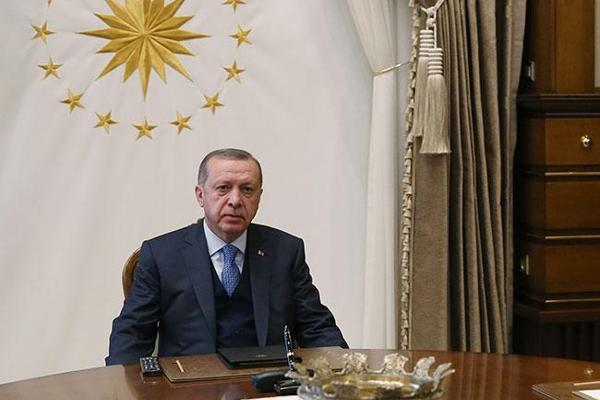Erdoğan blasts Central Bank over interest rate policy
ANKARA


President Recep Tayyip Erdoğan has accused Turkey’s Central Bank of “acting behind his back” on interest rate policy, according to governmental sources.
“We held a meeting on interest rates just before I went for an overseas trip. We spoke about how to lower them. But the Central Bank increased the rates when I was abroad. They always speak of ‘one-man rule’ [in Turkey] but what sort of a ‘one-man rule’ is this? They do not implement the decision we took. They have gone behind my back,” Erdoğan said during a meeting of the ruling Justice and Development Party’s (AKP) central executive board on April 2, according to sources familiar with the meeting.
“They are ‘independent.’ Well, it is us who are paying the price of their decisions … The remarks of some of our friends on the economy are very wrong. When you look at the indicators you see that almost 50 of them are positive but they keep on talking about a few problematic issues. This is huge misbehavior. I always warn them to lower interest rates. They say ‘OK’ in the meetings but then they make the opposite interest rate regulations,” he added.
The remarks come after reports that the government is working on a scheme to lower interest rates by reducing the Treasury’s borrowing requirement, with the new model expected to be announced by Erdoğan soon.
The president has often rebuked higher interest rates throughout his political career and repeatedly warned banks to lower rates, controversially arguing that high rates are the cause of inflation.
“The interest rate is both the mother and the father of inflation … Interest rates are the main reason behind all evils in the economy,” he said most recently during a speech on March 31.
No ‘difference of opinion’: Spokesperson
Meanwhile, Presidential spokesperson İbrahim Kalın denied reports that there are differences of opinion in the way the economy is being managed.
“Some speculations that there is a division in Turkey’s economic coordination emerge from time to time. I want to say these speculations do not reflect the truth,” Kalın said told reporters in Ankara on April 5.
That statement came after media reports suggesting that Deputy Prime Minister Mehmet Şimşek, seen by foreign investors as a reliable and stabilizing influence on the government’s economic policies, would resign.
As rumors swirled, Şimşek wrote on Twitter on April 5 that he had just landed in Istanbul to attend the Institute of International Finance’s 2018 Economic Forum, vowing to continue “working hard to serve the nation.”
